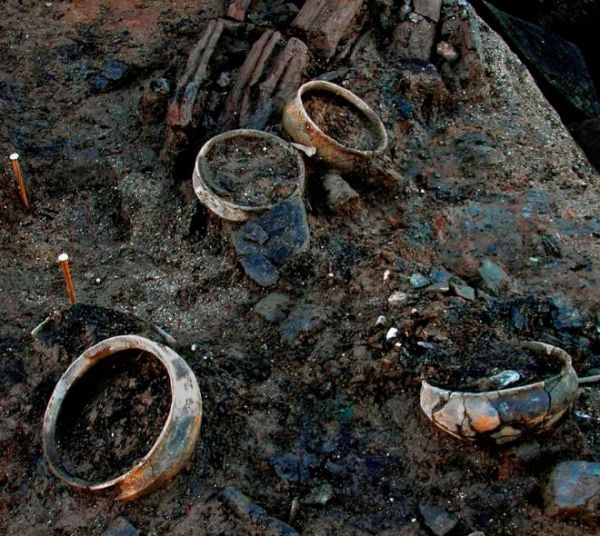
Objects found in the 'houses of Peterborough' - Photo: Cambridge Archeology Unit
A moment from life 3,000 years ago, frozen in time. An open book that will provide new data and will revolutionise the way of understanding the Bronze Age in the British Isles. These and other phrases have been used to describe the importance of the “houses of Peterborough”, a prehistoric settlement recently discovered in this town north of London.
The discovery is of two, possibly three, large circular houses made of wood and with thatched roofs. They were destroyed by fire 3,000 years ago, sinking them into the silt of the river, which has helped to preserve the remains in an exceptional state of conservation.
Inside, the researchers have been given a unique testament to the daily life of these ancient Britons from the late Bronze Age: dresses, jewellery, weapons, utensils, remains of animals and even food, still stuck to the pans. The hasty departure of the inhabitants of this site suggests an attack or an accident; for this reason, the "Peterborough homes" have been named in the media as ‘the Pompeii of Peterborough’ or ‘of the Bronze Age’, although it has nothing to do either with the date or the way of life of the two places.
The researchers, who will continue excavating until May, believe that the settlement is directly linked to the excavation of Must Farm, which is very close by. Together they formed part of an apparently thriving (given the objects found) community of one hundred people who left the site abruptly. The reason for this, for the moment, remains a mystery.